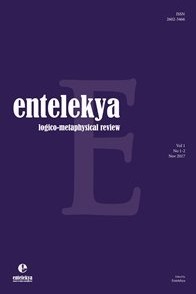Der Wille bei Augustinus
Der Wille bei Augustinus
Where does evil come from and how can it be reconciled with God's omnipotence? For Augustine, it is the human will from which evil results. According to his teaching, however, the will is only free to sin. And without the grace of God no one can avoid sinning, said Augustine. According to Augustine, by virtue of reasonableness one can only strive for the good. He will still need the grace of God to decide for the good. Furthermore, Augustine thought that, if God gives his grace to a person, it is impossible for him to reject it or to act contrary to it. These Augustinian doctrines certainly have an important status in Christian theology. At the same time, they set the course for the philosophical framework of debate over free will, which has continued since the days of Augustine. This contribution outlines the specific Augustinian perspective in the mentioned debate.
Keywords:
The question of theodicy, free will, original sin, the doctrine of grace the freedom of will,
___
- Alflatt, Malcolm E. “The Development of the Idea of Involuntary Sin in St. Augustine”. Revue d' Etudes Augustiniennes Et Patristiques 20, No. 1-2, 1974, 113-134.
- Antes, Peter. Grundrisse der Religionsgeschichte: Von der Prähistorie bis zur Gegenwart. Stuttgart: Kohlhammer 2006.
- Augustine, Saint. The Problem of Free Choice. Trans. Dom Mark Pontifex. London: Longmans, Green, 1955.
- Baumgärtel, Friedrich. “Monotheismus und Polytheismus.” Im AT., Die Religion in Geschichte und Gegenwart: Handwörterbuch für Theologie und Religionswissenschaft. Hg. v. Galling, Kurt, Vierter Band. Tübingen: J. C. B. Mohr, 1960.
- Fischer, Norbert. “Freiheit und Gnade: Augustins Weg zur Annahme der Freiheit des Willes als Vorspiel und bleibende Voraussetzung seiner Gnadenlehre.” Hrsg. Dieter Hattrup und Cornelius Mayer. Freiheit und Gnade in Augustins ‚Confessiones. Paderborn: Verlag Ferdinand Schöningh, 2003, 50-69.
- Horn, Christoph. “Augustinus und die Entstehung des philosophischen Willensbegriffs.” Zeitschrift für philosophische Forschung 50, No. 1-2, 1996, 113-132.
- Geerlings, Wilhelm. Augustinus-Leben und Werk. Eine bibliographische Einführung. Paderborn: Ferdinand Schöningh Verlag, 2002.
- Gilbert, Christopher. “Grades of Freedom: Augustine and Descartes.” Pacific Philosophical Quarterly 86 (2005), 201-224.
- Kahl, Wilhelm. Die Lehre vom Primat des Willens bei Augustinus, Duns Scotus und Descartes. Straßburg: K. J. Trübner, 1886.
- Kreuzer, Johann. Gestalten mittelalterlicher Philosophie: Augustinus, Eriugena, Eckhart, Tauler, Nikolaus v. Kues. München: Wilhelm Fink Verlag, 2000.
- Kreuzer, Siegfried. “Entstehung und Entwicklung des monotheistischen Gottesbildes im Alten Israel und im Alten Testament.” http://www.kreuzer-siegfried.de/texte-zum-at/monotheismus.pdf. Letzter Abruf: 31.07.2017, 1-21.
- Kohler, Josef. “Der heilige Augustinus und die Willensfreiheit.” Archiv für Rechts- und Wirtschaftsphilosophie 3, No. 2, 1909-10, 254-263.
- Lang, Bernhard. “Monotheismus,” Handbuch religionswissenschaftlicher Grundbegriffe. Band IV. Hrsg. von Hubert Cancik, Burkhard Gladi-gow, Karl-Heinz Kohl, Stuttgart: W. Kohlhammer, 1998, 148-165.
- Rist, John M., “Augustine on Free Will and Predestination.” The Journal of Theological Studies 20, No. 2, 1969, 420-447.
- Schindler, David C. “Freedom Beyond Our Choosing: Augustine on the Will and Its Objects.” Communio: International Catholic Review 29, No. 4, 2002, 618-653.
- Başlangıç: 2017
- Yayıncı: İlyas ALTUNER
